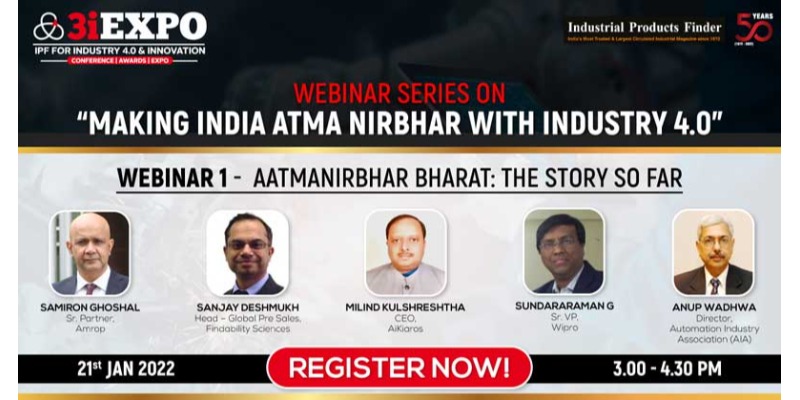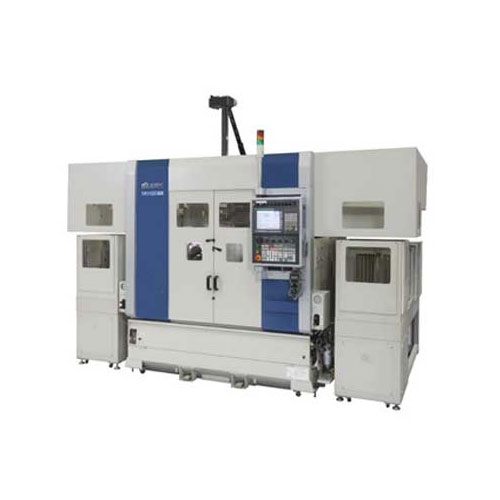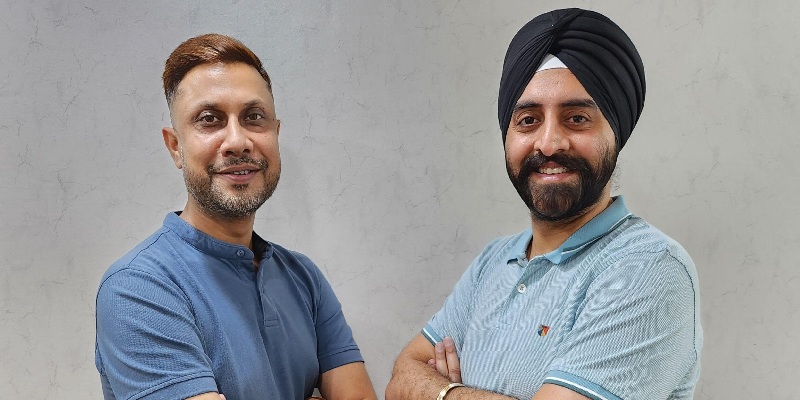Schedule a Call Back
3i EXPO Webinar - “Automation: The key tool to gain competitive edgeâ€Â
 Industry News
Industry News- Feb 01,22

Industrial Products Finder (IPF) kickstarted its webinar series for 3i Expo 2022 - which is being organised by IPF from March 25-26, 2022 at Nehru Centre, Mumbai - with the first virtual discussion panel - titled “Aatmanirbhar Bharat: The story so far†- recently. The 3i EXPO - 3i stands for “IPF for Industry 4.0 and Innovations†- aims to bring all the stake-holders of Industry 4.0 on one platform. This year Maharashtra Industrial Development Corporation (MIDC) will be the Presenting Partner, while Automation Industry Association (AIA) has joined hands as the Knowledge Partner for the Expo.
Discussion Forum
The Government is aiming
to increase contribution of manufacturing sector to India’s GDP from present
17% to 25% by 2025. Post-Covid, global companies are looking at alternate
destinations for sourcing raw materials and manufacturing their products. This
presents a very good prospect for India to increase its share in the global
trade. The Government of India has also launched Aatmanirbhar Bharat scheme
with an intention to make India self-sufficient and be a leading supplier to
the global manufacturing industry.
The Panel Discussion focused on the steps that India should
take to become the first choice of global manufacturing companies and the role
of automation and modern manufacturing technologies to achieve the goals of
Aatmanirbhar Bharat mission.
The Roundtable saw
participations of Anup Wadhwa, Director of Automation Industry
Association (AIA); Milind Kulshreshtha, Founder & CEO of AiKiaros; Samiron
Ghoshal, Senior Partner of Amrop; Sanjay Deshmukh, Head of Global
Presales at Findability Sciences; and G Sundararaman, Senior Vice
President & Head, Wipro PARI Automation business.
Commenting on the present
status of India's manufacturing sector, Sundararaman said, “If you intend to
become a global manufacturing hub, comparison with China is inevitable. Every
minute 15 cars are produced in China, which produces 26 million cars annually
(compared to India's 3 million car per year). Similarly, in China, robot
density in 200 robots per 10,000 employees. In India, robot density stands at
4-5 robots. If you compare China and India (in terms of manufacturing scale),
it is 1:10 in China's favour. Gap is very big between the present scale of
India's manufacturing sector and where it should be to a strong contender for a
global manufacturing hub.â€Â
However, according to
Sundararaman, India has been taking some measures to improve its manufacturing
capability and the country is moving in the right direction. “In service
sector, India has proved that it can ramp up capacity to match the global
scale. Even in manufacturing, there are sectors which are of world-class scale.
For example, in vaccine production, we are a global leader and were able to
increase the production of Covid vaccine very quickly. Another example is
two-wheelers sector, which annually produces 20 million units. Productivity
will be important for ensuring scale. In manufacturing, we need to relentless
focus on automation & digitalisations as they are important tools to
improving efficiency and productivity,†he added.
Giving a different twist
to the debate of competitiveness, Samiron Ghoshal, opined, “When you are
fighting against Goliath you cannot win the battle by fighting frontally. We
need to analyse competitiveness sector-by-sector and identify areas/sector
where we have an advantage. There are sectors where we are already a part of
global value chain (for example auto, pharma, etc). We need to go into areas
where we already have a connect with the OEMs and try to fill-in the gaps that
exist (or may exist) as big companies are planning to replace China as a
sourcing destination.â€Â
India is a major tier 1
& 2 supplier to the auto industry, but 65-75% is linked to engine &
engine related component & works (like forging). “With electrical vehicle
(EV) coming in, these auto component segments are under threat. Similarly, in
pharma, we are strong in generics, but in the base chemicals (which are used to
make these generics) China dominates the market. Here again, global companies
are looking for alternate suppliers of base chemicals. So, by identifying
areas/sectors where we have good presence and then using technology to improve
productivity and quickly scale-up, we have a better chance of succeeding. This
sector-specific focused approach can have higher success rate then targeting
all sectors at one go.†Ghosal added.
Focus and scale: Key for
gaining competitiveness
The government has rolled
out Aatmanirbhar Bharat campaign with an intention to make the country
self-sufficient. According to Anup Wadhwa, Aatmanirbhar means making things
which are essential for India within the country. “India needs products that
perhaps the world is not looking at. For example, in auto sector, while we are
putting our energy into 4W (like the rest of the world is doing), we are not
giving enough attention to bicycle or autorickshaw (3Ws). It is not just about
manufacturing, but about meeting the consumer’s end-to-end needs from design to
production. In our quest to serve the global customers, we are, perhaps, not
looking at opportunities that lie closer to us. India has certain unique
requirements. It is equally important to look at our ability to create value.
As a society, we do not give enough recognition for the jobs on shopfloor.
Youngsters today are more interested in service-oriented or IT-related jobs
than shopfloor. You cannot become a manufacturing nation without taking pride
in activities that happen on shopfloor,†he said.
Speaking about the key
hurdles in achieving the goals of Aatmanirbhar Bharat goals, Milind
Kulshreshtha stated, “This is the decade that will be very important for India
to take big strides and grow its share in the global manufacturing sector.
Collaboration between Government and private sector will be important to reach
the goals that we have set for ourself. Industry 4.0 should be looked at not
just for cost advantage, but also to build capabilities for any manufacturing
units. It requires workforce skilling, innovations, quality, and sustainability
factor (which has become important globally). Industry 4.0 is about offering
unique, innovative solutions for a specific manufacturing unit. Industry 4.0
and other technologies will also be important for integrating with global value
chain.â€Â
Samiron Ghosal believes
Indian manufacturing companies have to act quickly to take advantage of post
Covid market. “We have a very small window during which we have to compete with
other countries like Brazil, Vietnam, Mexico, Bangladesh, etc to attract global
investors. China succeeded in the last 30-35 years because of three key
ingredients - focus on areas where you want to win, achieve global scale in
focused areas, and build long-term relationship with OEMs and their suppliers.
It is important for India to make OEMs as well as their suppliers dependent on
us. By establishing relationship with long term perspective, we should gain
their trust. If we work on a strategy that focuses on our areas of strength,
helps in scaling up at speed and brings in long-term thinking, then everything
else will fall in place.â€Â
Post-Covid world seems to
be different from before with lots of geo-political changes and supply chain
disruptions. This could provide many opportunities to Indian manufacturers
globally. Sanjay Deshmukh said, “Covid triggered disruption in the supply
chain. US-China trade tension and Suez Channel blockage compounded the
situation further. All these factors have made companies realise that supply
chain has to be more resilient. For having extra agility and flexibility,
global majors are looking at alternate sourcing destinations like India. To be
a part of this new global supply chain, Indian manufacturers will have to plan
for digital transformation that provides sustainable, competitive advantage.
Explaining the importance
of adoption of advanced automation and manufacturing technologies for Indian
manufacturing companies, Anup Wadhwa, who is an Evangelist of the Samarth Udyog
Ecosystem that integrates the efforts of different agencies in Government and
Academia, said, “Industry 3.0 (i.e. automation) should become essential part of
the manufacturing infrastructure because unless you have electronic based
controllers on the shopfloor you will not have the bases for connectivity and
digitalization that we are now talking about in the Industry 4.0 era. For
becoming a key part of global value chain, some of the essential ingredients
are quality, productivity, repeatability, safety, etc. If you do not have the
basic automation infrastructure in place, then it becomes difficult to compete.
Government should focus on making conducive policies for encouraging automation
and building people capabilities.â€Â
Covid 19 pandemic has
exposed the global supply chain’s perils of depending on one country for the
supply of critical components for making products. India, by adopting new
manufacturing technologies and processes, should be ready to take the advantage
of the evolving market condition.
Related Stories

SME Magazine Honours India’s Fastest Growing Engineering Companies at NSE
The Smart Manufacturing & Enterprises (SME) Conference & Awards 2026 - held on February 11, 2026 at National Stock Exchange (Mumbai) - highlighted resilience and technology as the cornerstones of In..
Read more
India must focus on R&D alongside electronics manufacturing: Sanjay Huprikar
In this interview with Rakesh Rao, Sanjay Huprikar, Chief Global Officer of the Global Electronics Association, explores trends in global electronics industry, India’s manufacturing ambitions..
Read more
India is at a pivotal ‘Make in India’ inflection point: Manoj Patil
In this interview, Manoj Patil, Promoter and Managing Director, Patil Automation Limited, outlines its growth journey, capacity expansion, acquisitions, design-led approach, market challenges, and t..
Read moreRelated Products

Compact Fmc - Motorum 3048tg With Fs2512
Meiban Engineering Technologies Pvt Ltd offers a wide range of Compact FMC - Motorum 3048TG with FS2512.

Digital Colony Counter
Rising Sun Enterprises supplies digital colony counter.
Robotic Welding SPM
Primo Automation Systems Pvt. Ltd. manufactures, supplies and exports robotic welding SPM.













